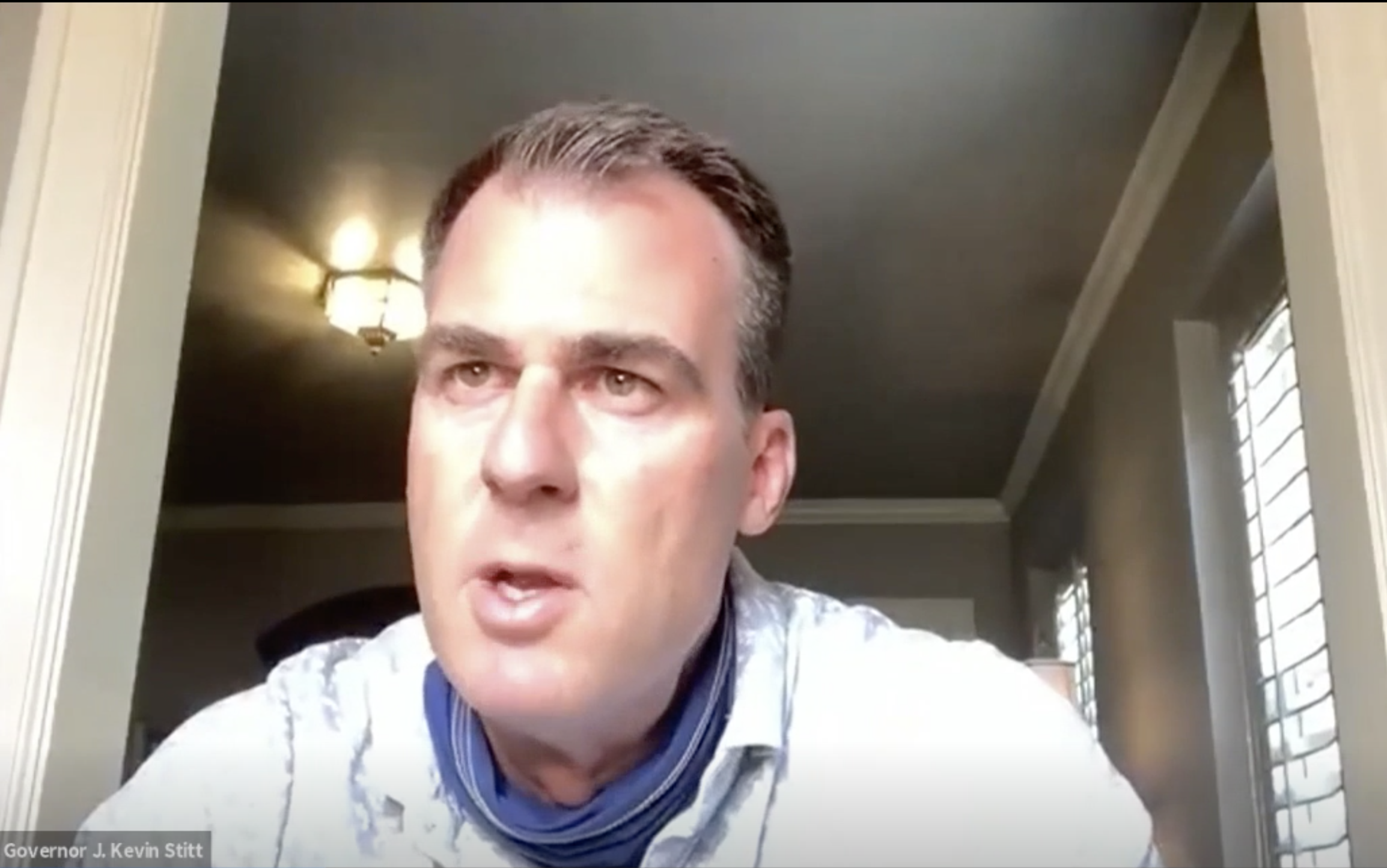
- Details
- By Darren Thompson
Tribes in Oklahoma have taken to Twitter to condemn Oklahoma Governor Kevin Stitt’s comments made at the Oklahoma History Center during a Martin Luther King, Jr. Day. event on Monday. Gov. Stitt, a member of the Cherokee Nation, used a speaking opportunity to denounce the U.S. Supreme Court's McGirt decision, saying Martin Luther King, Jr. would be "disgusted" by it.
"I believe that freedom fighters like Dr. King would be astounded, maybe even disgusted by the McGirt ruling,” said Oklahoma Governor Kevin Stitt in a speech on Monday. "Because the ruling created two sets of rules for Oklahomans, based on their race. In eastern Oklahoma right now, there is not equal protection under the law.”
“King believed, as I do, that every citizen of this nation is granted the same rights and opportunities under our constitution," Stitt said.
The McGirt ruling refers to the case McGirt v. Oklahoma. In it, the court considered the case of convicted child rapist Jimcy McGirt. In an effort to overturn his conviction, McGirt claimed he was wrongly prosecuted by the state of Oklahoma because he is American Indian and his crimes occurred on the Muscogee (Creek) reservation. The court agreed in a 5-4 decision that the reservation had never been disestablished, and therefore the state did not have jurisdiction. Jimcy McGirt was eventually prosecuted by the federal government and sentenced to three concurrent life sentences.
In 2020, a Supreme Court ruling determined that parts of eastern Oklahoma are still Indian Reservation lands. However, Stitt has argued that the ruling has brought on chaos for the criminal justice system in eastern Oklahoma.
Stitt’s Martin Luther King Jr. comments come as the Supreme Court is expected to make another determination on the McGirt case, which has brought forth complex, ongoing cases examining tribal, state, and federal issues.
Several Tribes responded to Stitt’s comments on the McGirt decision on Twitter, including the Muscogee Nation.
“Let be clear, Gov. Stitt, you are no Martin Luther King Jr.,” said the Muscogee Nation on Monday via Twitter. “He stood for truth and justice. Your pouting and dishonest fear-mongering about the effect of tribal sovereignty exhibit neither.”
The Chief of the Cherokee Nation also took to Twitter to condemn Stitt’s comments on the McGirt decision. “You can’t make this stuff up,” said Chief of the Cherokee Nation Chuck Hoskin, Jr. on Monday. “I’m certain Dr. King would not join Governor Stitt in his effort to destroy the reservations of Indian nations. In any case, this day should be about unity and joining together to shine a light on darkness.”
The McGirt ruling led to the affirmation of five other reservations in Oklahoma and has changed jurisdiction for criminal matters from the state to the federal government and tribes in cases that involve Americans Indian on Indian reservations. Tribes argue their citizens’ legal rights are better represented and protected in tribal or federal court.
Read more about the ongoing McGirt cases here.
More Stories Like This
Native News Weekly (August 25, 2024): D.C. BriefsUS Presidents in Their Own Words Concerning American Indians
Native News Weekly (December 14, 2025): D.C. Briefs
Wounded Knee Massacre Site Protection Bill Passes Congress
Two Murdered on Colville Indian Reservation
Help us defend tribal sovereignty.
At Native News Online, our mission is rooted in telling the stories that strengthen sovereignty and uplift Indigenous voices — not just at year’s end, but every single day.
Because of your generosity last year, we were able to keep our reporters on the ground in tribal communities, at national gatherings and in the halls of Congress — covering the issues that matter most to Indian Country: sovereignty, culture, education, health and economic opportunity.
That support sustained us through a tough year in 2025. Now, as we look to the year ahead, we need your help right now to ensure warrior journalism remains strong — reporting that defends tribal sovereignty, amplifies Native truth, and holds power accountable.
 The stakes couldn't be higher. Your support keeps Native voices heard, Native stories told and Native sovereignty defended.
The stakes couldn't be higher. Your support keeps Native voices heard, Native stories told and Native sovereignty defended.
Stand with Warrior Journalism today.
Levi Rickert (Potawatomi), Editor & Publisher
